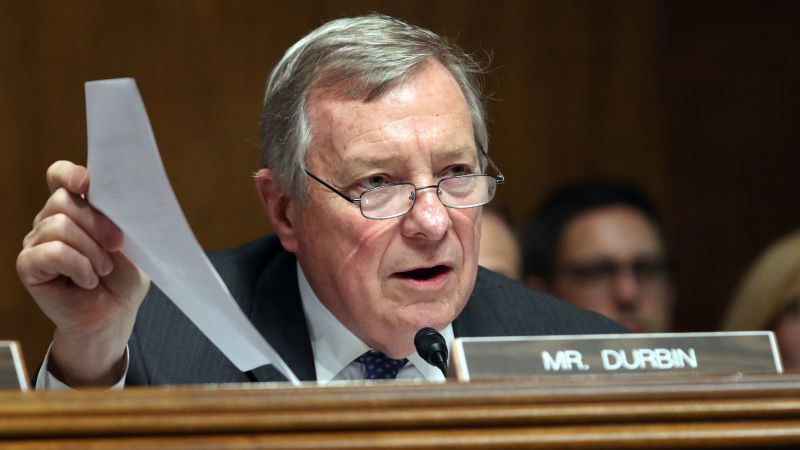On Wednesday, Dick Durbin, the seasoned and influential second-ranking Democrat in the United States Senate, publicly declared his intention to retire at the conclusion of his current term, prompting significant shifts within the political landscape of Illinois. This announcement signals the beginning of a highly competitive succession race for both Durbin’s seat and his leadership role in the Senate, which has been pivotal over his long career.
Durbin, who has represented Illinois in the Senate since 1996 and held the position of Senate Democratic whip since 2005, has often been a central figure within the Democratic Party. In an emotionally charged statement, he reflected on his journey: “The decision of whether to run for re-election has not been easy. I truly love the job of being a United States Senator. But in my heart, I know it’s time to pass the torch.” His words emphasized the difficulty of his decision but also illustrated his commitment to transparency and public service.
At the age of 80, Durbin’s retirement was somewhat anticipated within political circles. His departure is significant not only for the direct impact it has on the state of Illinois but also for the Senate as a whole. He is now the fourth Democratic senator to announce retirement plans, joining a growing list of veteran lawmakers opting out of the upcoming election cycle. Durbin’s resignation will leave notable vacancies on various Senate committees, particularly the Judiciary Committee, where he played a critical role as chairman during the last Congress. His leadership was instrumental in the confirmation of Ketanji Brown Jackson, the first Black woman to serve on the Supreme Court, and his advocacy for immigration reform has made lasting impressions, especially regarding legislation for Dreamers.
As news of Durbin’s retirement spreads, the political atmosphere warms with speculation and ambition among potential Democratic contenders in Illinois. Creatively positioning themselves for a possible bid, several Democrats have been quietly building their financial support networks, preparing for what is likely to be a fiercely contested primary in the predominantly blue state. Notable figures who are expected to step into the ring include Reps. Raja Krishnamoorthi, Robin Kelly, and Lauren Underwood, alongside Illinois Lieutenant Governor Juliana Stratton. Each candidate brings unique perspectives and constituencies that could shape the future direction of the state’s political landscape.
In the Senate, Durbin’s retirement heralds broader implications regarding leadership dynamics. The subsequent race to fill his influential position will initiate a scramble for power that may not conclude until after next year’s midterm elections. A secret ballot of Democratic senators will determine who will fill the vital whipping role, which involves coordinating party strategies and mobilizing support for legislative initiatives. Speculation surrounds potential candidates such as Senators Brian Schatz, Amy Klobuchar, and Patty Murray, who could all emerge as leading figures in the search for Durbin’s successor. However, the political landscape is fluid, and other senators may also surface with aspirations for this highly sought-after role.
Following the announcement, the Senate Majority Leader, Chuck Schumer, expressed his gratitude towards Durbin through public statements, marking the end of an era. Schumer described Durbin as “a trusted partner, one of the most respected voices in the Senate for decades, my dear friend, and, of course, my former roommate.” Such sentiments encapsulate the deep bonds formed through years of collaboration and shared commitment to public service.
In conclusion, as Dick Durbin sets the stage for his upcoming retirement, he not only closes a significant chapter in his life but also opens the doors for future leaders in the Senate and Illinois. The political community watches closely, awaiting how these developments will unfold in the months leading to the next election. The ripple effects of Durbin’s decision may shape the Democratic Party’s strategies and governance in meaningful ways.



